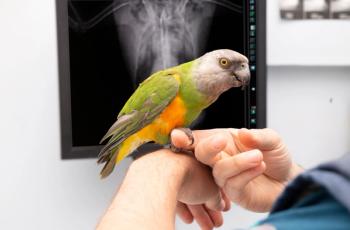
Special issue tackles zoonotic, vector-borne diseases in animals
Cleveland-In June, DVM Newsmagazine will dedicate an entire supplement to discussing recent developments on emerging vector-borne and zoonotic diseases and the impact they are having on veterinary medicine.
Cleveland-In June, DVM Newsmagazine will dedicate an entire supplement to discussing recent developments on emerging vector-borne and zoonotic diseases and the impact they are having on veterinary medicine.
As the human-animal bond grows stronger and urban expansion continuesto spread into rural areas, the threat of exposure to vector-borne diseasesincreases for both people and their pets.
Although many of the vector-borne diseases have existed for years, researchersare discovering many of these diseases are "re-emerging" and becomingan even greater threat to animals and their owners. New diagnostic methodshave also revealed that dogs and cats can serve as sentinels for diseasesresearchers believed they could not contract.
More than ever, veterinarians are playing a vital role not only trackingand diagnosing diseases, but educating clients and the public about preventionand treatment.
Our team of veterinary experts will provide you with latest researchand information on tick-borne diseases, such as Lyme disease and Ehrlichiosis,and mosquito-borne diseases, which include heartworm disease and the WestNile Virus. Other topics include: flea control, leptospirosis, Bartonellaand an update on Giardia and Toxoplasma.
The supplement will also feature a section on the continuing role veterinarians play as educators to their clients about these vector-borne diseases that threaten the health of pets. Through preventive medicine and early diagnosis, veterinarians can help reduce the risk of pets contracting and transmitting vector-borne and zoonotic diseases.
Newsletter
From exam room tips to practice management insights, get trusted veterinary news delivered straight to your inbox—subscribe to dvm360.




